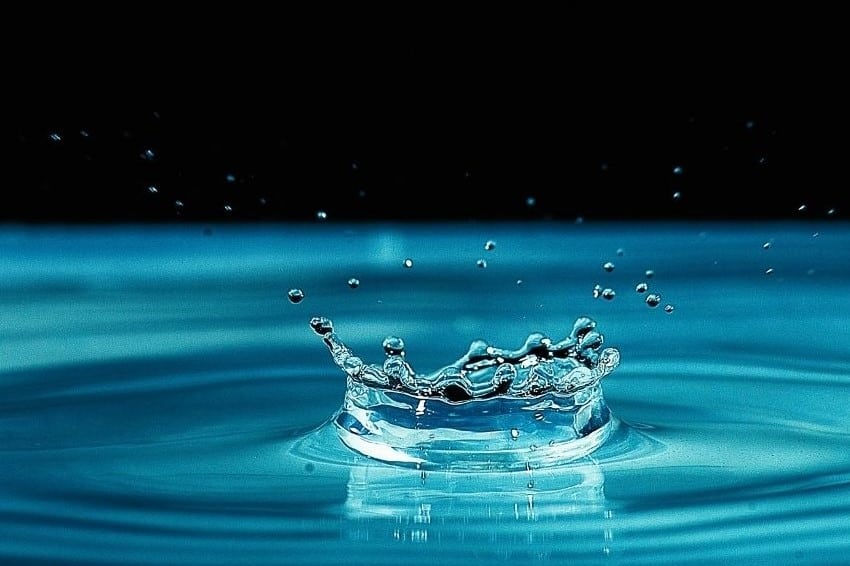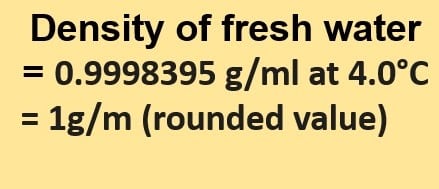Water is the most abundant element on Earth. It makes up more than 70% of the Earth’s surface and is the only substance that can exist in all three states: solid (ice), liquid, and gas (vapor). It freezes at zero degrees Celsius and boils at 100 °C at sea level. It is flavorless, odorless, and practically colorless. Ice floats because it is less dense than the liquid.
Water is the universal solvent and has a pH of 7. Although pure water does not conduct electricity, it can become a conductor when it dissolves other chemicals. Water has a high specific heat (4.184 J/g* degrees C) and a density of one gram per milliliter. The molecules of water are polar, cohesive (sticky), and adhesive (attractive). Water is known as the universal solvent because it can dissolve virtually any substance. As a result, pure water is rarely encountered.
Table of Contents
Physical Properties of Water
A physical property is a property of matter that can be observed and quantified without changing the sample’s chemical characteristics. Water’s physical properties, namely color, temperature, turbidity, taste, and odor, are related to its appearance. The following are a few commonly used physical properties of water.
| The melting point of water | 0.00 °C (32.00 °F; 273.15 K) |
| The boiling point of water | 99.98 °C (211.96 °F; 373.13 K) |
| Specific heat of water | 4182 J/kg°C |
| Thermal conductivity of water | 0.591 W/m·K |
| The surface tension of water | 72 mN/m at room temperature |
| The dipole moment of water | 1.84D |
| Latent heat of vaporization | 536 cal (1 kg of water) |
| Density of water g/ml | 0.9998395 at 4.0°C (39.2°F) |
| Density of water lb/U.S gallon | 8.345 lbs/U.S. gal |
| Specific gravity of water | 1 at 4 degrees Celcius |
| Unit weight of water | 62.48 pounds |
| Cubic foot weight of water | 62.48 pounds |
| Viscosity of water | 0.890 cP |
Chemical Properties of Water
Chemical properties are any properties of matter that can only be observed and measured by a chemical change. For instance, A chemical change occurs when salt is dissolved in water. The reactant (sodium chloride) is not the same as the products (sodium cation and chloride anion). As a result, every ionic molecule that is soluble in water will undergo a chemical change. Some chemical properties of water include the amphoteric nature of water, self-isolation of water molecules, and electrolysis of water.
Amphoteric nature of water
Water is amphoteric, which means it can behave as both an acid and a base. Since the water molecule contains hydrogen atoms, it can behave as an acid in a process. Water’s amphoteric property is crucial to the acid-base characteristics of aqueous solutions.
For details about the amphoteric nature of water, please check this link “Amphoteric nature of water”.
Self-isolation of water molecules
Under normal conditions, water will self-ionize to a very limited level. The reaction in which a water molecule contributes one of its protons to a neighboring water molecule, whether in pure water or an aqueous solution, is known as water self-ionization.

Electrolysis of water
The decomposition of water into oxygen and hydrogen gas in the presence of electricity is known as electrolysis.
The two electrodes are immersed in water and connected to an electrical source during the electrolysis process. Water decomposes into H+ and OH– ions when an electric current is passed through it. Oppositely charged electrodes attract these opposite charges.
2 H2O (l) + electrical energy → 2 H2 (g) + O2 (g)
Frequently Asked Questions
1. Is boiling water a chemical change?
Boiling of water is an example of a physical change since water vapor retains the same molecular structure as liquid water after boiling.
2. Is water evaporating a chemical change?
Melting, evaporation, and condensation are examples of physical changes that do not result in the formation of new materials.
3. Is viscosity a chemical property?yy
Viscosity is a physical property because it determines how quickly or slowly a liquid moves. It is determined by liquid intermolecular interactions and sticky forces.
4. Is mixing sugar and water a chemical change?
Dissolving sugar in water is a physical change as sugar molecules are dispersed within the water, but the individual sugar molecules remain intact. Please refers to the full article “Sugar solubility in water”.
5. What is the pH value of distilled water?
The pH of distilled water is seven making it neither acidic nor basic.
6. Is water an insulator and why?
Yes, pure water act as an insulator. However, water commonly available contains charged ions and impurities that make it a very good conductor of electricity.
More Links
What is Fresh Water?
What is Heavy Water?
Water Potential| Simple Explanation
What is Potable Water?
Lewis Structures| Hydrogen (H2), and Water (H2O)
Weight of Water| Properties of Water
- BCl3 Lewis Structure in four simple steps - November 1, 2023
- PH3 Lewis Structure in four simple steps - October 8, 2023
- PF3 Lewis structure in four simple steps - September 24, 2023



